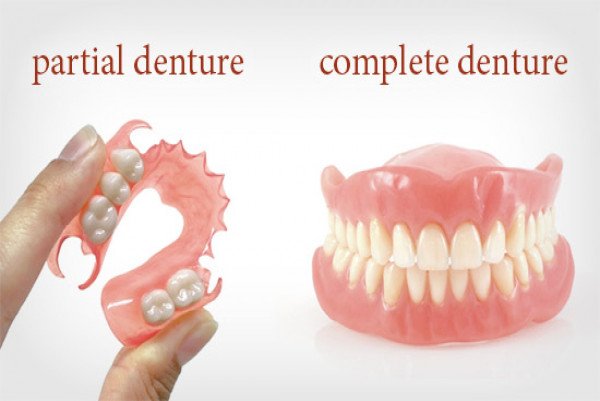
Dentures (Fixed/ Removable/ Complete)
A denture is a removable replacement for missing teeth and surrounding tissues. Two types of dentures are available -- complete and partial dentures. Complete dentures are used when all the teeth are missing, while partial dentures are used when some natural teeth remain.
Complete Dentures
Complete dentures can be either "conventional" or "immediate." Made after the teeth have been removed and the gum tissue has begun to heal, a conventional denture is ready for placement in the mouth about 4- 6 weeks after the teeth have been removed.
Unlike conventional dentures, immediate dentures are made in advance and can be positioned as soon as the teeth are removed. As a result, the wearer does not have to be without teeth during the healing period. However, bones and gums shrink over time, especially during the healing period following tooth removal. Therefore, a disadvantage of immediate dentures compared with conventional dentures is that they require more adjustments to fit properly during the healing process and generally should only be considered a temporary solution until conventional dentures can be made.
Partial Dentures
A removable partial denture or bridge usually consists of replacement teeth attached to a pink or gum-colored plastic base, which is connected by metal framework that holds the denture in place in the mouth. Partial dentures are used when one or more natural teeth remain in the upper or lower jaw.
Are There Alternatives to Dentures?
Yes, dental implants can be used to support permanently cemented bridges, eliminating the need for a denture. The cost is usually greater, but the implants and bridges more closely resemble the feel of real teeth. Dental implants are becoming the alternative to dentures but not everyone is a candidate for implants.
